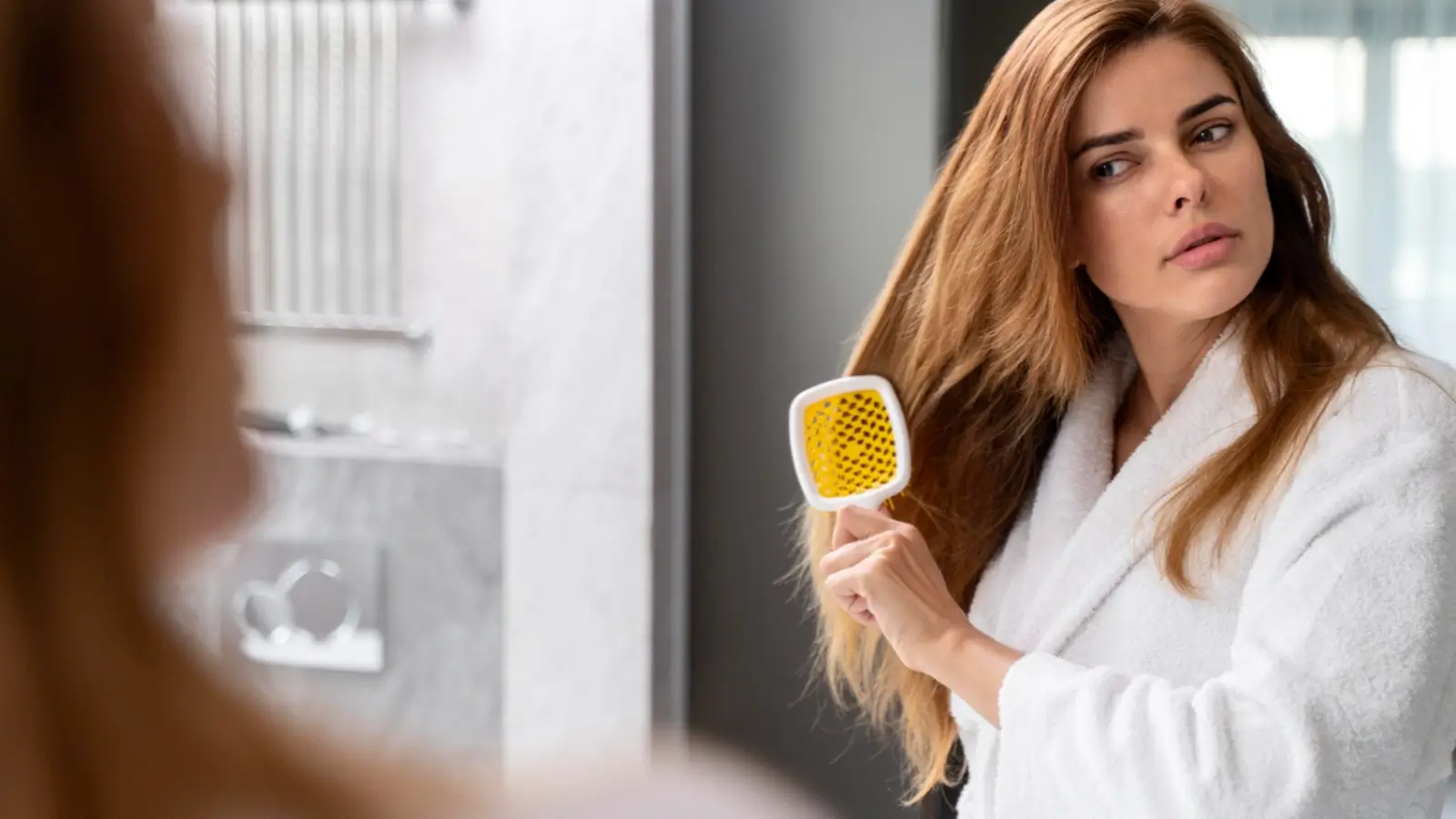Does gliding your fingers through your hair feel scary? If you find hundreds of hair strands falling off your scalp in certain seasons, it can be more than that. Your hair may secretly signal about your hair health.
Hair fall in specific seasons, especially monsoon or entering in winters is common. Whenever there is change in environment, humidity, or temperature drops, our scalp reacts to it.
If you notice hair fall for more than 2-3 months with hair thinning, you may need to pay attention to your hair health. This blog can be a helpful read for you if you experience this issue.
How to Tell If It’s More Than Just Seasonal Hairfall?
It is normal if lose 50-100 strands in a day, but these are the signs to look out for:
-
Hair fall lasting more than 2–3 months
-
Visible thinning or bald patches
-
Hair coming out in clumps when combing or washing
-
Reduced volume or visible scalp
Common Causes of Prolonged Hairfall
If it’s not seasonal, there may be following causes of continued hairfall:
-
Nutritional Deficiencies - Low levels of iron, zinc, vitamin D3, and biotin
-
Stress and Hormonal Imbalances - PCOS, thyroid, postpartum changes, or anxiety
-
Poor Scalp Hygiene - Dandruff, product buildup, or clogged follicles
-
Medical Conditions - Autoimmune disorders, post-COVID recovery, or chronic illness
What You Can Do to Control It?
Your hair defines your health until the fall is due to genetic or medical conditions. To combat other reasons, you can start by making a few manageable lifestyle adjustments:
-
Eat a balanced, protein-rich diet, including greens, lentils, nuts, and seeds.
-
Drink 2-3 liters of water daily to stay hydrated.
-
Maintain scalp hygiene using gentle shampoos and exfoliating the scalp weekly.
-
Try meditation, journaling what you feel and think, or spending time in nature to manage stress.
-
You can include biotin capsules to improve hair strength and keratin structure.
Scalp Inflammation? Do This!
Chronic inflammation due to poor diet or stress is common and can silently harm hair follicles. To overcome this, you can add healthy fats and omega-rich foods to your routine. Fish oil capsules are a great source of omega-3s. These help reduce inflammation and improve scalp hydration and support hair density
Wrapping Up
Though hair fall is a common problem, experiencing it for a prolonged period can go beyond seasonal concern. If you see more than 50-100 strands of your hair leaving the scalp, nutritional deficiencies, poor scalp hygiene, stress, and medical conditions can be the issue.
Quick fixes may help temporarily, but long-term results come from a holistic approach. Pay attention to your lifestyle and nutrition, consult a dermatologist if needed, and listen to your body and give it what it needs.
















